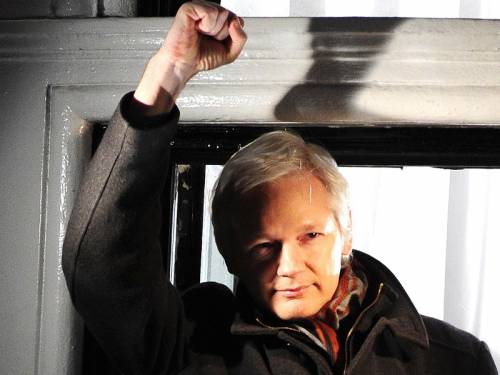Assange back in Australia
 Julian Assange has spent his first evening as a free man in Australia, marking the end of more than a decade of legal battles and confinement.
Julian Assange has spent his first evening as a free man in Australia, marking the end of more than a decade of legal battles and confinement.
The WikiLeaks founder, who has been a prominent and controversial figure in global politics, reunited with his family on home soil, an event his lawyer described as “saving his life”.
Assange's return to Australia comes after he spent nearly 15 years abroad, much of it in confinement.
Assange's journey back to Australia follows years of evading extradition and fighting legal battles.
Since WikiLeaks published classified United States military footage in 2010, showing the alleged killing of Iraqi civilians and two Reuters journalists by US forces, Assange has been a fugitive.
In 2012, he sought asylum in Ecuador's embassy in London to avoid extradition to the US. He remained there until 2019, when UK police detained him. He was then held in a UK prison until his recent release.
In a plea deal with the US, Assange admitted to one charge of conspiracy to commit espionage, resulting in a “time already served” sentence.
This plea deal, which saw him avoid the maximum 175-year prison sentence, was a dramatic turning point in his lengthy legal saga.
Assange's return has been met with mixed reactions.
Prime Minister Anthony Albanese - who had done little to help the case of the Australian citizen, Assange - welcomed him home.
“I am very pleased that this saga is over,” the PM said.
On the other side, Shadow Home Affairs Minister James Paterson said; “The reason why it's gone on for a long time is that he was evading lawful extradition requests”.
Shadow Foreign Minister Simon Birmingham argued that Assange should not receive a hero's welcome.
While celebrating the end of a prolonged diplomatic issue, the Albanese government has been careful not to upset the US government, which made significant concessions in its pursuit of Assange.
Notably, the Australian government did not cover the cost of Assange's return flight, which was financed by a crowdfunding effort that raised over $700,000.
Assange is now a free man in Australia, but his future remains uncertain.
His legal team has indicated that he will seek a personal pardon from US President Joe Biden. Meanwhile, his wife Stella Assange has warned that his case sets a dangerous precedent for press freedom.
“I hope journalists and editors and publishers everywhere realise the danger of this US case against Julian that criminalises news-gathering and publishing,” she said.
As Assange adjusts to his newfound freedom, his case continues to provoke debate about national security, freedom of the press, and the role of whistleblowers.
For now, Assange's family and supporters celebrate his return, hoping for a period of recovery and adjustment.








 Print
Print